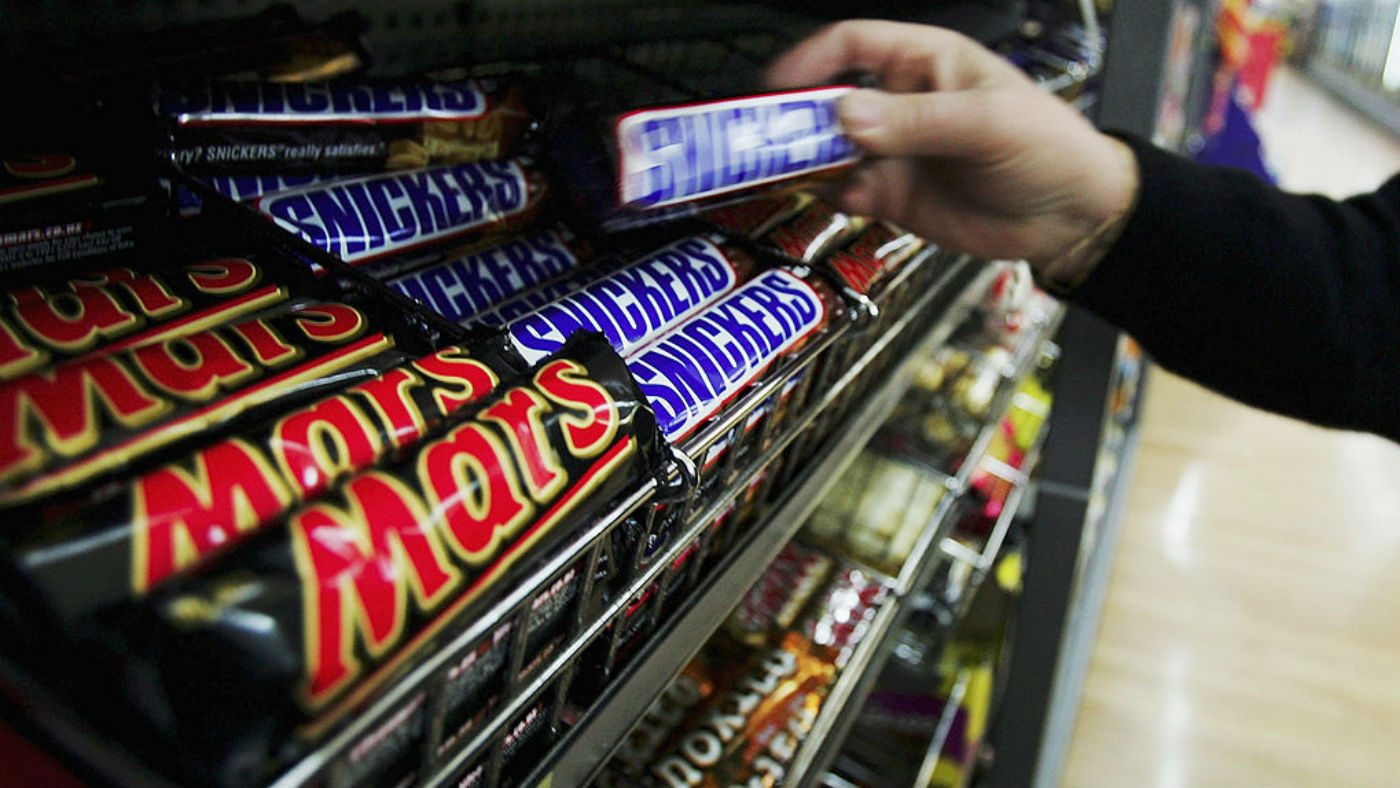Will new guidelines mean an end to the sugar high?
Targets to help fight obesity could see manufacturers reducing the size of their much-loved treats

A free daily email with the biggest news stories of the day – and the best features from TheWeek.com
You are now subscribed
Your newsletter sign-up was successful
Could chocolate bars shrink even further?
New guidelines have been published that could drastically reduce the amount of sugar in some of the UK's favourite treats. The proposals could take 200,000 tons of sugar out of the British diet each year, the Daily Telegraph says.
Public Health England (PHE) drew up the targets as part of the government's continuing initiative to prevent obesity from developing into a public health crisis.
The Week
Escape your echo chamber. Get the facts behind the news, plus analysis from multiple perspectives.

Sign up for The Week's Free Newsletters
From our morning news briefing to a weekly Good News Newsletter, get the best of The Week delivered directly to your inbox.
From our morning news briefing to a weekly Good News Newsletter, get the best of The Week delivered directly to your inbox.
It is hoped that the guidelines will reduce the average sugar content in chocolate bars, cakes and biscuits by a fifth over the next three years.
"Currently, one in five children are overweight or obese when they start primary school," increasing their risk of type 2 diabetes, heart disease and some cancers, reports the BBC.
It adds that the average child consumes three times more sugar than the recommended limit.
What are the new guidelines?
A free daily email with the biggest news stories of the day – and the best features from TheWeek.com
Nine types of common sweet treat are covered in the guidelines: chocolate; sweets; cakes; pastries; puddings; biscuits; ice lollies; yoghurt, and breakfast cereals.
PHE is urging companies to cut the sugar content in these items by five per cent this year and aim for them to have 20 per cent less by 2020.
Each category also has a suggested maximum calorie count - for example, single-serving chocolate bars should not contain more than 250 calories.
As a result, "some popular chocolate bars and tubes of sweets could shrink in size", the BBC reports.
PHE says the goals are "challenging but achievable, particularly in higher sugar products".
Nestle, which makes Kit Kat, Yorkie and Aero bars, among others, has already announced plans to go beyond the PHE target by reducing sugar in its chocolate recipes by ten per cent over the next year.
Does this mean a government war on sugar?
Not so much a war as a stern talking-to. The PHE guidelines are just that - guidelines - and so firms have no legal obligation to follow them.
However, this year's Budget demonstrates that the government is prepared to get punitive when it comes to tackling obesity after Chancellor Philip Hammond announced a new tax on drinks with more than 5g of sugar per 100ml, set to come into force in April 2018.
Even so, Sue Kellie, deputy chief executive of the British Dietetic Association, said the government must go further to crackdown on the amount of junk food that the UK consumes.
"The government needs to further restrict the advertising of high fat, sugar and salt foods before the 9pm watershed and ban promotions on those same products," she told the BBC.
"If we are to successfully tackle obesity and reduce its long term costs to the NHS and wider economy, we need to change attitudes and habits over the long term - there's no quick fix."
-
 5 cinematic cartoons about Bezos betting big on 'Melania'
5 cinematic cartoons about Bezos betting big on 'Melania'Cartoons Artists take on a girlboss, a fetching newspaper, and more
-
 The fall of the generals: China’s military purge
The fall of the generals: China’s military purgeIn the Spotlight Xi Jinping’s extraordinary removal of senior general proves that no-one is safe from anti-corruption drive that has investigated millions
-
 Why the Gorton and Denton by-election is a ‘Frankenstein’s monster’
Why the Gorton and Denton by-election is a ‘Frankenstein’s monster’Talking Point Reform and the Greens have the Labour seat in their sights, but the constituency’s complex demographics make messaging tricky
